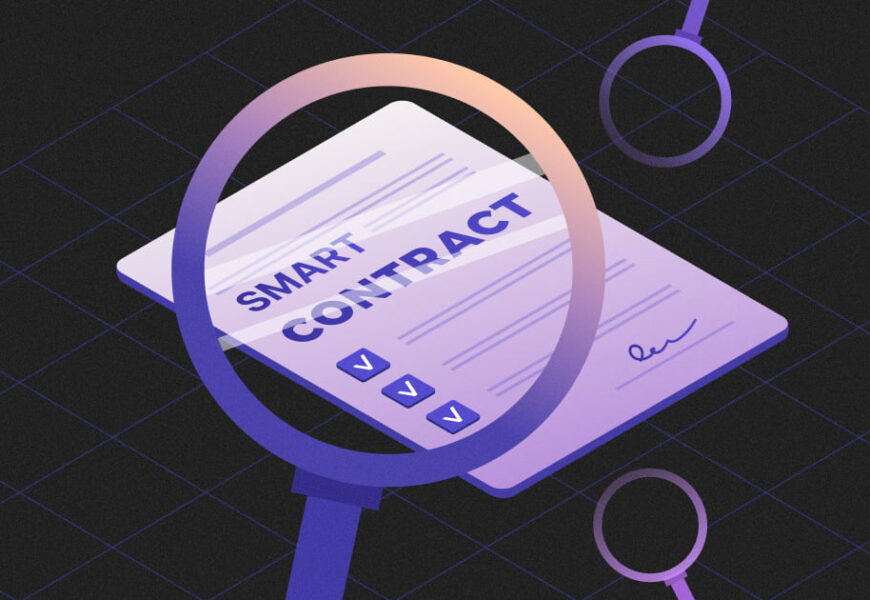If your business is delving into the world of blockchain technology, then you have very likely heard of something called a smart contract audit. The smart contract audit is a detailed analysis of the smart contract code in a protocol administered with the purpose of identifying problems such as security vulnerabilities, inefficient coding practices, and faulty code. The audit will then work toward discovering and implementing the solutions that will repair and resolve any issues that are found. These audits are crucial for ensuring the performance, security, and reliability of decentralised Web3 applications.
When it’s time for your business to undergo a smart contract audit, you can simply request the help of smart contract audit services, which will dispatch a highly trained team of security experts to use both automated and manual processes to review your application’s code, architecture, logic, and security measures in order to identify and rectify any potential problems. They will look specifically for sections of code that might prove vulnerable to malicious cyber attacks, along with areas that could be improved.
Smart contract codes are deployed to blockchains like Ethereum, Avalanche, and BNB Chain. When these contracts go live, anyone from authorised end-users to malicious cyber crooks can access them, which is why it’s critical that all vulnerabilities be resolved in advance of launching or updating a decentralised application.
After the audit has been completed, the auditors will issue a summary report detailing their findings, the methods they used to resolve them, and any other potential issues they identified, along with a plan for resolving them. Following a comprehensive smart contract audit, your business’s projects will be able to deploy their contracts with utmost confidence in the application’s integrity, knowing that it will be completely secure and that the user funds are well protected.
If your business is planning to undergo a smart contract audit, then it’s highly recommended that you be well prepared for it in advance so you can save both time and money. In order to get the maximum positive effect out of your audit, consider the following steps:
- Clearly establish the functional requirements
- Have a detailed technical description prepared
- Have the development environment set up
- Develop a series of comprehensive unit tests
- Be prepared to follow code style and implement best practices
The success of any crypto project requires proper preparation. One important factor that often goes overlooked is comprehensive documentation, which is essential for effective development, testing, and review. The following are some of the main steps used to audit a smart contract:
Documentation Collection -The project undergoing audit begins with a code freeze. It then provides the auditors with all pertinent technical documentation, such as the codebase, architecture, and all other related materials. The documentation will ensure that the auditors have access to a comprehensive guide to what the code is intended to achieve, along with its exact implementation.
Automated Testing – This process, which is also known as a formal verification engine, is an automated testing system deployed to check all possible states of a smart contract in order to alert the auditors to any issues that might undermine the smart contract’s security or functionality. The auditors will also conduct unit tests on individual functions, integration tests, and penetration testing that will probe for security vulnerabilities.
Manual Review – The auditing team will manually examine each line of code carefully in search of any remaining errors or vulnerabilities. Automated tests are an excellent way to identify bugs in the code, but human engineers are more capable of detecting details like potential problems with the contract logic or architecture, poor coding practices that, while technically correct and able to pass automated tests, are actually weak points that can leave the code vulnerable to cyber attacks.
Contract Error Classification – Each possible error is classified in accordance with the severity of the exploit it might enable:
- Critical – The safe functioning of a protocol is impacted.
- Major – Centralisation and logical errors that could cause a loss of user funds or protocol control.
- Medium – Could have a negative effect on the platform’s performance or reliability.
- Minor – Inefficient code that doesn’t place the application’s security at risk.
- Informational – Errors related to style or to industry best practices.
Initial Report – The smart contract auditing team will draft an initial report summarising any code flaws or other issues, coupled with feedback on methods the project’s team can use to repair them. The resolution of all a project’s issues ensures that its smart contracts are ready to be deployed.
Final Audit Report – The auditors will write up all of their findings in a highly detailed final report, with all issues marked as either unresolved or resolved. The report is then handed over to the project’s team and is usually made public to users and other stakeholders so the protocol can enjoy full transparency.
We hope this clarifies the role of the smart audit!






